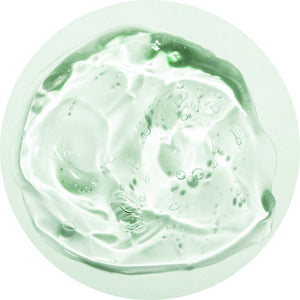
Polyglutamic Acid
Polyglutamic Acid is a super hydrator, holding more water than hyaluronic acid to deeply moisturize your skin.
It boosts your skin’s own moisture levels and works hand-in-hand with hyaluronic acid to keep skin hydrated and slow down aging signs like wrinkles.
This ingredient leaves your skin looking fuller and smoother, making it feel soft and youthful.
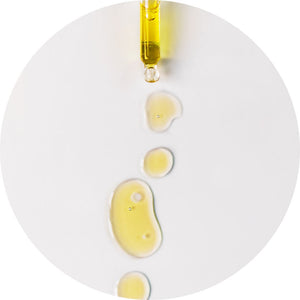
SK INFLUX V MB®
SK Influx V MB intensively hydrates and restores the skin's natural barrier, reducing dryness and flakiness for a smoother complexion.
Its lipid-rich formula helps minimize the appearance of wrinkles, enhancing skin firmness and elasticity.
Ideal for sensitive and mature skin, it rejuvenates and imparts a youthful, radiant glow.
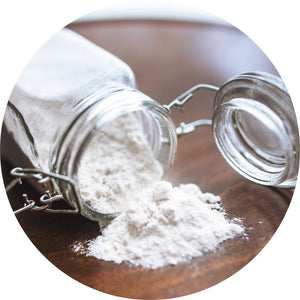
Phytosphingosine
Phytosphingosine is a natural fat in your skin that strengthens its protective layer, helping to keep moisture in and irritants out.
It's a key ingredient for ceramides, which keep your skin smooth by filling in tiny cracks.
Plus, it fights against skin problems like acne and eczema, making it great for keeping your skin clear and calm.
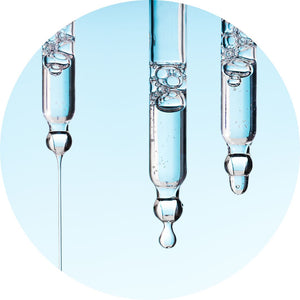
Hyaluronic Acid
Hyaluronic Acid deeply hydrates your skin, holding over 1000 times its weight in water, giving you a plump, refreshed look.
It boosts collagen production, vital for firm, healthy skin, and speeds up healing, making it great for recovering from skin damage.
As a powerful anti-aging ingredient, it helps maintain skin hydration and elasticity, keeping your skin looking youthful and vibrant.
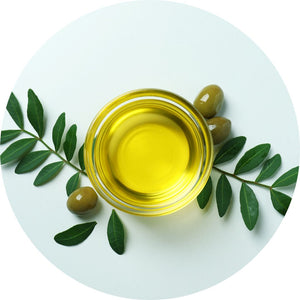
Squalane
Squalane (Olive derived) is a light oil that deeply moisturizes your skin and protects it from things like pollution, thanks to its antioxidant power.
It calms redness and makes skin tone even, which is great for all skin types, including sensitive skin.
Squalane also helps control your skin's oil levels, keeping it balanced and smooth without blocking your pores, for healthier-looking skin.
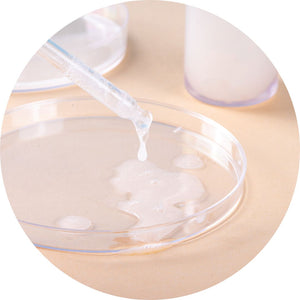
Ceramides
Ceramides are like the glue that holds your skin cells together, keeping your skin strong and smooth.
They help lock in moisture and protect your skin from things like pollution and sun damage.
Keeping your ceramide levels up is important for healthy, hydrated skin that looks young and feels soft.
Replenishing ceramides can also help soothe and reduce skin issues like dryness, redness, and signs of aging, making them a key ingredient for maintaining your skin's overall health and appearance.
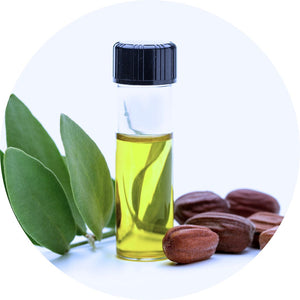
Jojoba
Jojoba hydrates your skin, locking in moisture for a fresh, plump feel without clogging pores.
It mirrors your natural oils, balancing oil production for a clear, healthy complexion.
Rich in vitamin E, it shields your skin from environmental damage, while soothing and healing common skin issues like acne and dryness, leaving your skin smooth and comfortable.
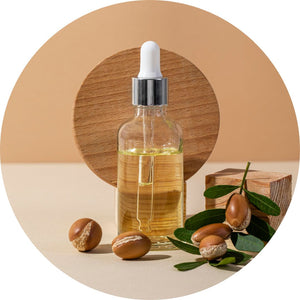
Argan
Argan oil delivers a burst of nourishment to your skin, protecting it from daily environmental stress and keeping it looking healthy and vibrant.
Its deep moisturizing ability leaves your skin feeling soft and supple, while also calming redness and helping to heal acne scars.
Perfect for everyday use, this lightweight, non-greasy oil enhances your skin's natural beauty without clogging pores.
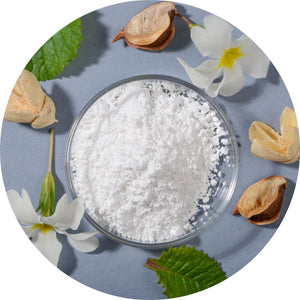
Allantoin
Allantoin, derived from the comfrey plant, is a gentle yet effective skin care ingredient that deeply hydrates and soothes.
It acts as a natural emollient, preventing dryness and reducing irritation, making it ideal for sensitive skin.
Its exfoliating properties help remove dead skin cells, improving skin texture and brightness.
Additionally, allantoin supports collagen production, aiding in skin repair and rejuvenation for a healthier, more youthful appearance.
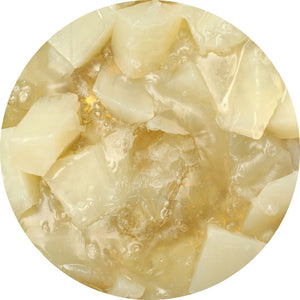
Glycerin
Glycerin is a natural moisturizer that draws water to your skin, keeping it hydrated and preventing dryness.
It strengthens your skin's barrier, protecting against irritants and boosting skin's resilience, making it healthier and more robust.
Additionally, glycerin aids in healing, has mild germ-fighting properties, and replenishes essential moisturizing factors, keeping your skin soft and supple as you age.
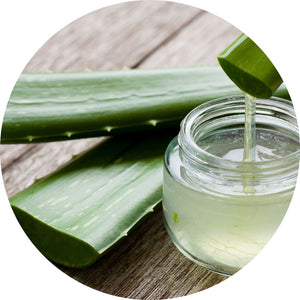
Aloe
Aloe is a skin care powerhouse, packed with vitamins, minerals, and natural compounds that provide a range of benefits from anti-inflammatory to antimicrobial actions.
It's renowned for accelerating the healing of wounds and soothing skin irritations like burns, reducing redness and fighting infections.
Aloe also plays a key role in anti-aging by boosting the production of vital skin components like hyaluronic acid and collagen, while its anti-acne properties and natural hydration make it ideal for maintaining smooth, clear, and well-moisturized skin.
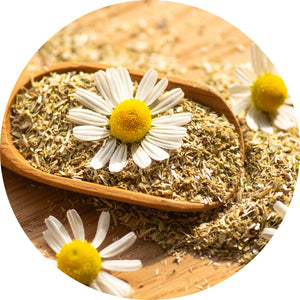
Chamomile
Chamomile, packed with antioxidants and anti-inflammatory agents, deeply soothes the skin, reducing redness and calming irritations.
Its astringent properties help tighten pores and smooth the skin, while its brightening effects work to fade acne scars and even out skin tone.
Additionally, chamomile offers anti-aging benefits by protecting against environmental stress and reducing the appearance of fine lines and wrinkles, leaving your skin looking fresh and youthful.
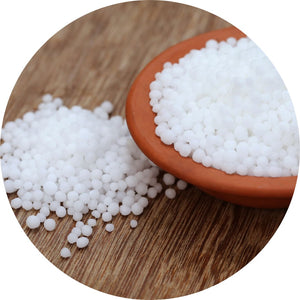
Urea
Urea, found naturally in your skin, helps keep it moist and soft by drawing in and holding onto water.
It also gently removes dead skin, making your skin smoother and helping other skincare products work better.
Plus, urea can help fight off mild fungus, keeping your skin free from flaking and rough patches.
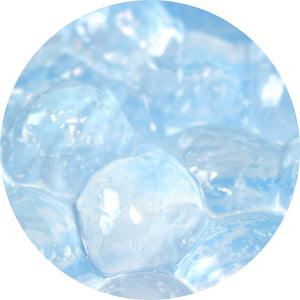
Hydrolyzed Collagen
Hydrolyzed Collagen, with its small molecules, easily penetrates the skin, enhancing its ability to retain moisture for a smoother, more hydrated complexion.
While applied topically, it provides a visible smoothing effect on fine lines and wrinkles, giving your skin a more youthful appearance.
As a humectant, it locks in moisture, ensuring your skin stays hydrated and plump for longer periods.
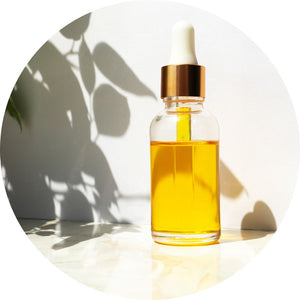
Tocopherol (Vit E)
Vitamin E is your skin's shield against environmental damage, actively fighting signs of aging caused by UV rays and pollution.
It promotes healing and relief from skin irritations like eczema, while effectively regulating oil balance for a clearer complexion.
Essential for keeping skin hydrated and supple, Vitamin E strengthens your skin's natural barrier, preventing dryness for a smooth, youthful appearance.
 No Fragrance
No Fragrance
 No Sulfates
No Sulfates
 No Dye
No Dye
 No Parabens
No Parabens
 No Petrolatum
No Petrolatum
 No Phthalates
No Phthalates
 Cruelty Free
Cruelty Free






















